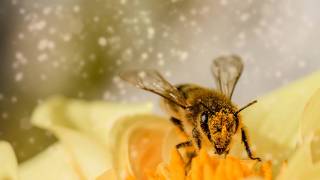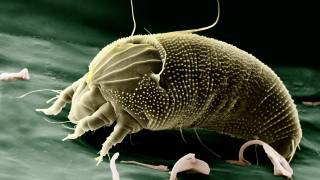1st Peanut Allergy Treatment Approved

The U.S. Food and Drug Administration (FDA) announced the approval for the medication Palforzia to Aimmune Therapeutics to mitigate allergic reactions, including anaphylaxis, that may occur with accidental exposure to peanuts.
Palforzia is a therapeutic treatment, not a preventive vaccine for peanut allergies.
Moreover, the FDA said in a press release issued on January 31, 2020, that ‘those who take Palforzia must continue to avoid peanuts in their diets.’
Palforzia cannot be used for the emergency treatment of allergic reactions, including anaphylaxis. And, should not be administered to those with uncontrolled asthma said the FDA.
Treatment with Palforzia may be initiated in individuals ages 4 through 17 years with a confirmed diagnosis of peanut allergy.
Palforzia is a powder that is manufactured from peanuts and packaged in pull-apart color-coded capsules for Dose Escalation and Up-Dosing, and in a sachet for maintenance treatment.
The powder is emptied from the capsules or sachet and mixed with a small amount of semisolid food - such as applesauce, yogurt, or pudding - that the patient then consumes.
“Peanut allergy affects approximately 1 million children in the U.S. and only 1 out of 5 of these children will outgrow their allergy. Because there is no cure, allergic individuals must strictly avoid exposure to prevent severe and potentially life-threatening reactions,” said Peter Marks, M.D., Ph.D., director of the FDA’s Center for Biologics Evaluation and Research.
“Even with strict avoidance, inadvertent exposures can and do occur. When used in conjunction with peanut avoidance, Palforzia provides an FDA-approved treatment option to help reduce the risk of these allergic reactions in children with peanut allergy.”
There are several misconceptions about peanut allergies.
For example, a peanut is a legume belonging to the same family as soybeans and peas, not a tree nut.
And while it was previously believed that an allergy to peanuts was lifelong, research has shown up to 20 percent of individuals with a peanut allergy eventually outgrow it.
Peanut allergy is a condition in which the body’s immune system mistakenly identifies even small amounts of peanut as harmful.
Most allergic reactions to peanut are unpredictable in occurrence and in how they present, with some individuals experiencing severe reactions from even trace amounts.
Physical symptoms can develop within seconds of exposure and may include skin reactions, digestive discomfort, or more dangerous reactions, such as the constriction of the throat and airways, and loss of adequate blood flow to vital organs of the body.
Antihistamines and epinephrine can be used to treat allergic reactions, but severe reactions can be fatal even with appropriate, prompt treatment.
Treatment with Palforzia consists of three phases: Initial Dose Escalation, Up-Dosing, and Maintenance.
The effectiveness of Palforzia is supported by a randomized, double-blind, placebo-controlled study conducted in the U.S., Canada, and Europe in approximately 500 peanut-allergic individuals.
The safety of Palforzia was assessed in double-blind, placebo-controlled studies in approximately 700 peanut-allergic individuals.
Recent peanut vaccine development news
- January 6, 2020 – The data from a recent study suggests ‘peanut allergens cross a model of the gut lining, causing it to leak.’ And, a vaccine developed using single peanut allergens displayed on CuMVtt may represent a novel and safe therapy against peanut allergy.
- December 6, 2019 – Researchers from the University of South Australia announced they have developed a radically novel vaccine candidate that’s poised to cure a potentially life-threatening condition, peanut allergies.
In recent years, awareness about peanut allergy in children has risen, as has the number of peanut allergy cases reported. A 2017 study reported that peanut allergy in children had increased 21 percent since 2010 and that nearly 2.5 percent of U.S. children may have an allergy to peanuts.
The FDA, an agency within the U.S. Department of Health and Human Services, protects the public health by assuring the safety, effectiveness, and security of human and veterinary drugs, vaccines and other biological products for human use, and medical devices.
Peanut allergy medication and vaccine development news published by Precision Vaccinations.
Our Trust Standards: Medical Advisory Committee
























